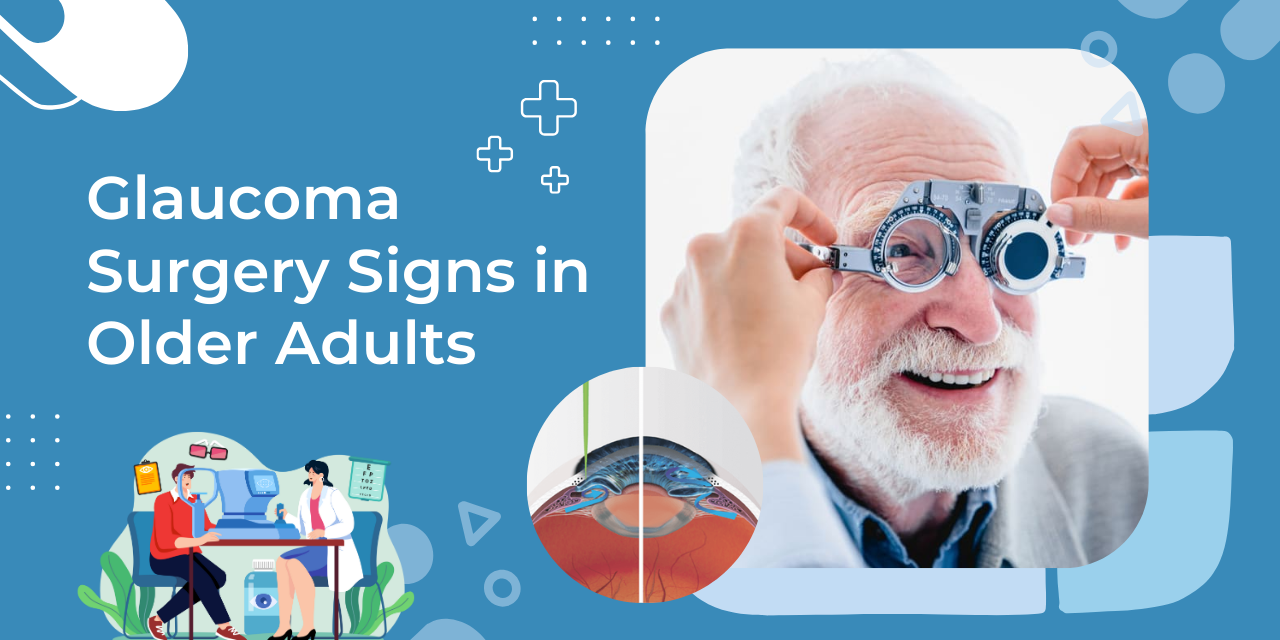Glaucoma is a serious eye condition that can lead to vision loss if not treated promptly. It is particularly prevalent among older adults, making awareness of its signs and symptoms crucial. Understanding when glaucoma surgery may be necessary can help caregivers and patients make informed decisions about eye health.
Understanding Glaucoma
Glaucoma occurs when the pressure inside the eye, known as intraocular pressure (IOP), rises to damaging levels. This pressure can harm the optic nerve, which transmits visual information from the eye to the brain. While there are various types of glaucoma, primary open-angle glaucoma is the most common, especially among older adults. Regular eye exams can help detect this condition early, but certain signs may indicate that surgery is needed to manage the condition effectively.
Common Symptoms of Glaucoma
Although glaucoma is often called the “silent thief of sight,” some symptoms can signal the need for further intervention:
➼ Gradual Loss of Peripheral Vision: One of the earliest signs of glaucoma is a gradual loss of peripheral vision. An older adult may find it difficult to see objects to the side or notice that they bump into things more often.
➼ Tunnel Vision: In advanced cases, glaucoma can lead to tunnel vision, where only a small central area of vision remains clear. This can severely affect the individual’s ability to drive or engage in daily activities.
➼ Halos Around Lights: Patients may notice halos around lights, particularly at night. This can be due to increased IOP or corneal swelling.
➼ Blurred Vision: Blurred or cloudy vision can occur, which might worsen over time.
➼ Eye Pain or Headaches: In some cases, particularly with angle-closure glaucoma, patients may experience sudden eye pain, headache, nausea, or vomiting.
Signs That Surgery May Be Needed
If an older adult exhibits any of the following signs, it may indicate that glaucoma surgery is necessary:
➼ Ineffective Medication: If eye drops and oral medications fail to control IOP effectively, surgery may be recommended. Persistent elevated IOP can lead to further optic nerve damage, necessitating surgical intervention.
➼ Frequent Changes in Vision: If an older adult experiences frequent fluctuations in vision, particularly involving peripheral vision, this could be a sign that their glaucoma is progressing. These changes may prompt a doctor to recommend surgical options.
➼ Increased Frequency of Eye Examinations: If an ophthalmologist schedules more frequent appointments to monitor the progression of glaucoma, this might indicate a need for surgery. Regular monitoring can help determine whether surgical intervention is necessary based on the patient’s condition.
➼ Structural Changes in the Eye: An eye specialist may observe changes in the optic nerve or retinal nerve fiber layer during examinations. Significant structural damage could suggest that surgery is the best option to prevent further vision loss.
➼ Poor Compliance with Medication: Some older adults may struggle with adherence to a medication regimen due to memory issues or side effects. If they cannot manage their glaucoma medications, surgery may provide a more effective long-term solution.
Types of Glaucoma Surgery
If surgery is deemed necessary, there are several options available, including:
- Trabeculectomy: This procedure involves creating a small drainage hole in the eye to help fluid escape and reduce eye pressure.
- Tube Shunt Surgery: In this procedure, a small tube is implanted in the eye to help drain excess fluid and lower intraocular pressure.
- Laser Surgery: Various laser procedures, such as selective laser trabeculoplasty (SLT), can improve drainage and reduce eye pressure without the need for incisional surgery.
Conclusion
Recognizing the signs that an older adult may need glaucoma surgery is vital for preserving their vision and quality of life. If you or a loved one exhibits symptoms of glaucoma or struggles to manage their condition, consult an eye care professional promptly.Dr. Preetinder Singh at Dr. PreetInder Singh Eye Hospital can provide guidance on the most appropriate treatment options, including the possibility of glaucoma surgery in Patiala. By taking proactive steps, individuals can better manage glaucoma and maintain their vision for years to come. For more information or to schedule an appointment, please call Us at +911752227169.

